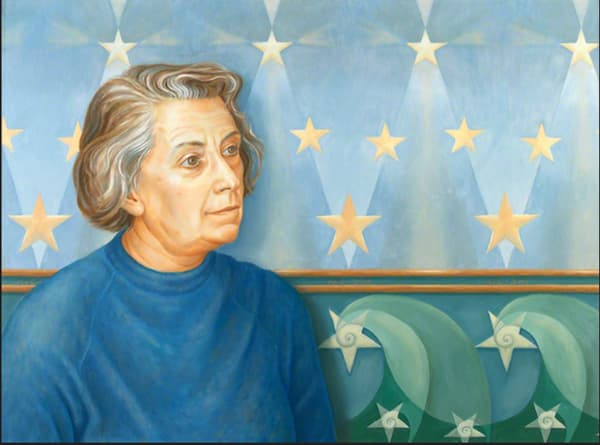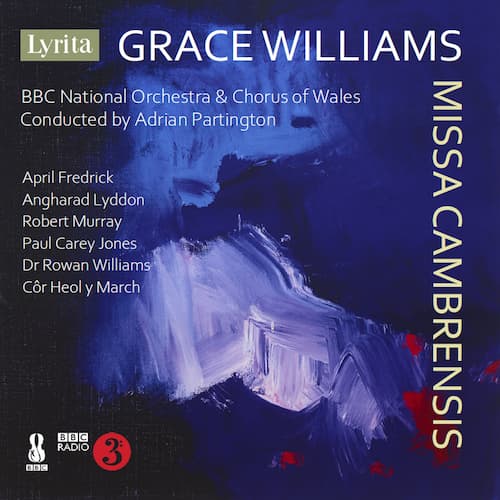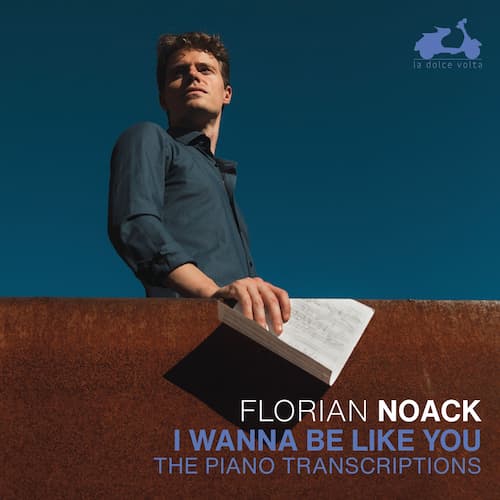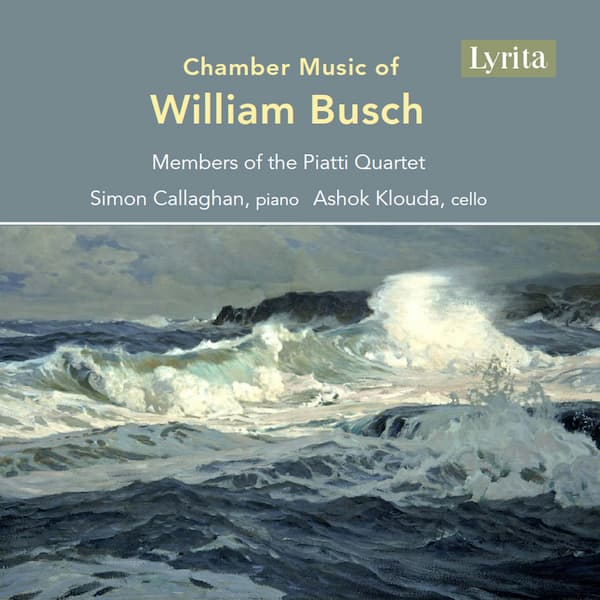Welsh composer Grace Williams (1906–1977) grew up in a Welsh-speaking household that had music at its core. Williams’ father, William, was a schoolteacher and also conductor of the Romily Boys’ Choir, for which Grace was accompanist. The choir appeared not only locally but also internationally, performing in the US at the White House for President Woodrow Wilson and in Paris in 1912 and Liège in 1921. The singing tradition of Wales was an important foundation in Williams’ musical background.

Ceri Thomas: Grace Williams, 2001 (Llyfrgell Genedlaethol Cymru / The National Library of Wales)
Williams started her musical studies at University College, Cardiff, and continued them at the Royal College of Music, studying under Ralph Vaughan Williams and Gordon Jacob. At the RCM, she met the other great women composers of the 1920s: Dorothy Gow, Imogen Holst, and Elizabeth Maconchy. The latter was her friend for over 50 years, and they prided themselves on their unstinting (and highly valued) evaluations of each other’s music.
In 1930, Williams was in Vienna where she studied with Egon Wellesz. She commented on the difference between her two teachers in a 1976 interview for the magazine Welsh Music:
[Wellesz] was marvellous, and had so different an approach from Vaughan Williams, who was the sort of personality to whom you could only take your best music. Vaughan Williams knew his limitations as a teacher, though: he would say ‘I know there’s something wrong, but I can’t put my finger on it’, but Wellesz could. He had a way of saying, ‘It begins to get weak at this point, so you will scrap from here onwards and re-write’. But then he’d been a pupil of Schoenberg, whose method this was.
She returned to London in late 1931 and became friends with Benjamin Britten, who encouraged her creative talents. Britten enabled her work with the Strand Film Company in 1936. She returned to Wales in early 1947 and was a freelance composer, writing for both the BBC schools’ programs and writing film scores.
The work that is considered her greatest legacy, the Missa Cambrensis, had its origins in a commission from the Llandaff Music Festival for a ‘substantial piece’. The first performance was in Llandaff Cathedral in June 1971. The performance was a success, as acknowledged both by her own reaction and by the Welsh composers in the audience, which included Daniel Jones, David Wynne, and Alun Hoddinott, as well as the conductors John Carewe and Eric Wetherell.
The work combines Welch and Latin texts and was always intended for secular performance, rather than as a church ceremony. The title, ‘Cambrensis’ has a dual origin: in Latin it means ‘of Wales’ and can also be taken as a reference to the 12th century Welsh clergyman and writer Giraldus Cambrensis.
She uses the five parts of the Mass Ordinary as her anchor points: Kyrie (I), Gloria (II), Credo (III), Sanctus and Benedictus (IV) and Agnus Dei (V), with the heart of the work in the Credo. It opens with the same mystical atmosphere as had the Kyrie, puts chant-like music in the choir and soloists’ voices, and then adds glockenspiel and bells for emphasis. This is, as one writer noted, ‘the central pillar within the arch-like framework of the Mass’. The composer thought it less an affirmation of belief as a summation of the mystical qualities of the entire work.
Grace Williams: Missa Cambrensis – III. Credo
In the middle of the Credo, Williams added a setting of her Carol Nadolig (Christmas Carol), setting the words of Saunders Lewis, a founder of the Welsh nationalist political party, Plaid Cymru. Sung in Welsh by a children’s choir, the carol tells of the birth of Christ, springing from the ‘Flower of Bethlehem’.
Grace Williams: Missa Cambrensis – III. Carola Nadolig
Grace Williams: Missa Cambrensis – III. Credo [conclusion]
As her magnus opus, the work captures both her legendary status as a composer and the human quality of her music. Her Welsh pride comes through in the inclusion of this isolated language in the international language of Latin while, at the same time, preserving the qualities of Welsh song.
This performance by BBC National Orchestra & Chorus of Wales and the Côr Heol y March children’s choir is supplemented by soloists April Fredrick, soprano; Angharad Lyddon, mezzo soprano; Robert Murray, tenor; Paul Carey Jones, bass; with Dr Rowan Williams as narrator. Rowan Williams was 104th Archbishop of Canterbury (2002–2012) and was previously Archbishop of Wales. The conductor is Adrian Partington.
The music seems to combine both large-scale and small-scale forces, with monumental music and chamber music sharing the same responsibilities. After its premiere in 1971, the work languished until revived in 2016 by the BBC National Orchestra and Chorus of Wales. Its requirements for extensive narration in Welsh will probably limit its take-up beyond Wales, but it is wonderful to hear the composer’s unique contribution to ‘Celtic melancholy’ but in a monumental setting.

Grace Williams: Missa Cambrensis
BBC National Orchestra Wales & Chorus of Wales | Adrian Partington, conductor
Lyrita, SRCD422
Official Website
For more of the best in classical music, sign up for our E-Newsletter


